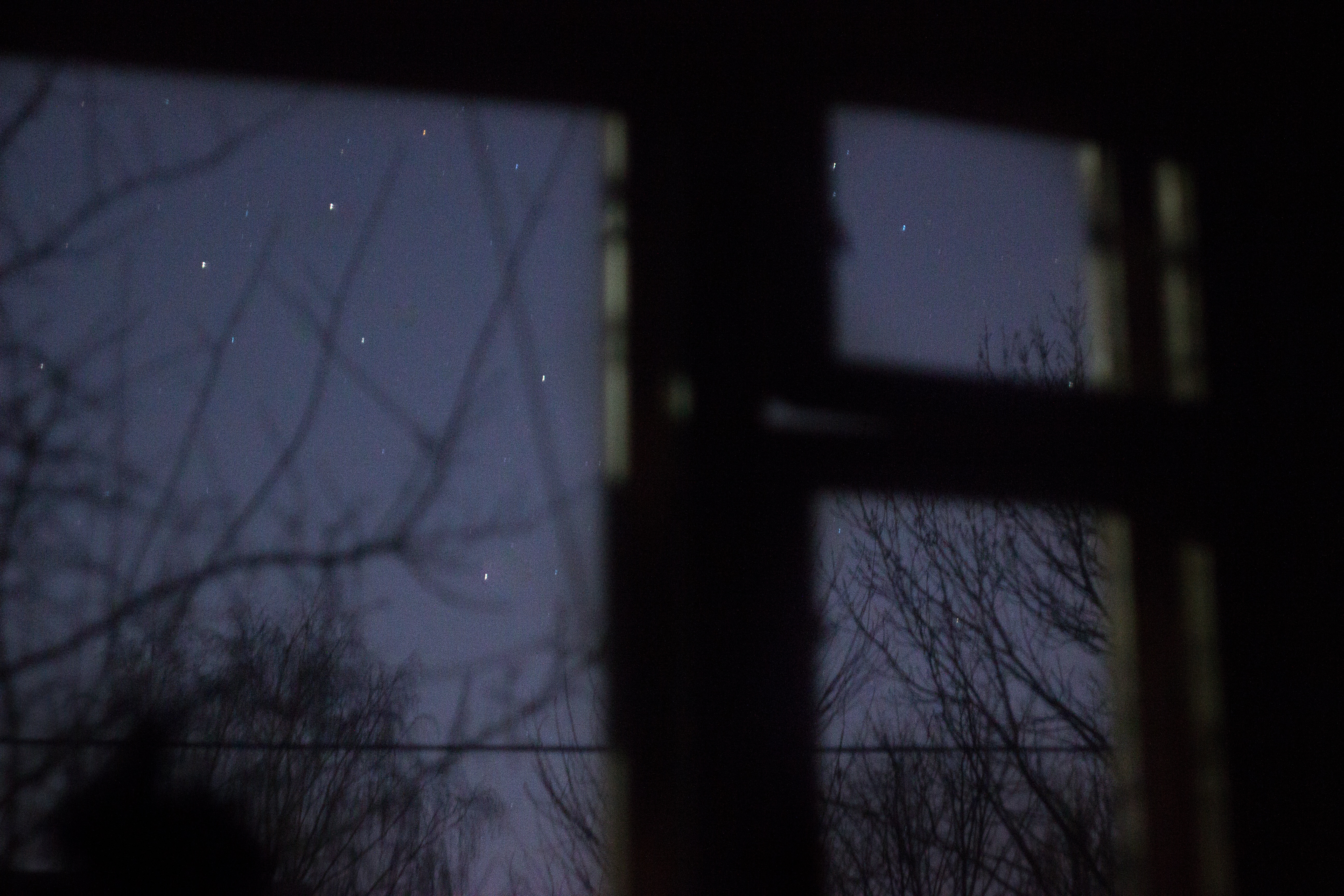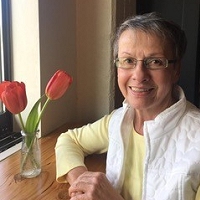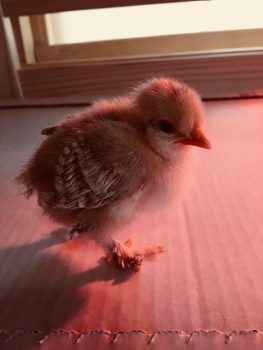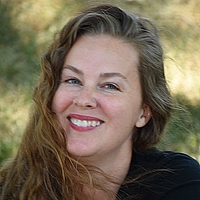
Last month, I wrote about the first few days of an intense writing challenge I was part of: writing twenty-eight plays in twenty-eight days. The project, sponsored by Theatre Delicatessen in London, involved a couple of hundred writers from around the world (mostly in the U.K., though) and one Evil Overlord (well, he’s not really evil) named Sebastian.
Every day at 4:00 PM (U.S. Central Time), we’d receive the daily brief from Sebastian, and then we’d have thirty-six hours to write a play using his brief for inspiration, although the last twelve hours of a given brief overlapped with the first twelve of the next.

Very quickly, I began to question the wisdom of committing to the project. I’d never written a play before (not really, anyway) and I spent a good chunk of the first week fighting with formatting. WORD, my software of choice, has a downloadable screenplay template, but not one for stage plays, and even the screenplay one is kind of klunky. Eventually, with some encouragement from friends, I scrapped the template and did my own thing. Freeing myself from the constraints of someone else’s formatting did much for my mindset.
But I was still floundering.
The first few briefs had been relatively simple. The initial prompt, for example, was the phrase, “Brave Little Soldier,” with bonus points for setting it in your hometown. Well, my actual hometown (as opposed to the town where I live) had a significant number of losses when the towers fell on 9/11/01, so I made my characters the adult children of people who had died that day. Emotional, yes, but relatively easy.
As the challenge progressed, the briefs became more demanding. When I wrote about this in February, I mentioned the first weekend challenge, about nightmares, but once I got past my fear of the material (my nightmares are weird… and personal…) I ended up having fun with it. After all, the brief also said we had an unlimited budget to work with.
More than once, I was tempted to throw my laptop into the pool and never write again. Ever.
More than once I whined to friends, family, and the dogs – basically whomever would listen, or pretend to – that I was too stupid or too boring to respond to these things that expected you to come up with edgy, even avant garde ideas.
More than once my husband had to talk me down from the proverbial ledge.
My friend Clay, the Creativity Guru I mentioned in my previous post – the one I’d convinced to do this challenge with me – finally gave me the key to my frustration.
“Look,” he said. “You’re a level 40-something human.”
“Forty-seven,” I specified.
“Okay, but you’re only a level one playwright.”
“That’s fair,” I responded, “But I’m a level thirty-seven writer.” (The first ten years of your life don’t count.)
“Yes,” he said, “but you’re using that writing muscle in a new and different way. And really, this shouldn’t be called ’28 plays in 28 days.’ It should be ’28 shitty first drafts of plays.'”
That conversation became my guidepost, and parts of it morphed into a mantra, over the rest of the month.
And as things evolved, it turned out that the briefs I balked at the most, or felt like I had nothing to offer for, ended up resulting in my best work.
An instruction to “write shite” and “let yourself go” inspired me to pull a bunch of my notecards (sticky notes leftover from the 100 Days of Making challenge, each with a scene, sentence, or snippet of dialogue) off the fridge and order them into a play. A couple of weeks later, given a time-restriction exercise, I went back to the fridge for more notecards, and I really feel that the two plays that resulted from those – “Scenes From a Marriage” and “Theories of Everything” – are the most cohesive of my creations.
But there are others I’m proud of. The math brief led me to a piece where the dialogue was all based on the Fibonacci sequence, and mentioned Phi and the nautilus shells. (“Nautilus”) A brief asking us to interview people and then write a monologue suitable for teens, making it seem as if it was one person speaking, gave me “Wo(Man)Hood” about a young woman who experiences anxiety but is also bi-gender, and a brief asking us to write about truth and art inspired me to write a monologue about body positivity – and the really cool thing about that one is that when my friend Nuchtchas read it, it inspired her to make art.
One brief, in particular, I have dubbed “Calvinball from Hell,” and when I read it, I told Clay that I was certain Sebastian had once been kicked out of an improv troupe. Here are the instructions we were given:
Let’s be super duper strict. Below are the rules for your play:
1. You must have 4 characters in the play – and the gender for 3 of them must be undefined! You can add two more – but only if they are not human.
2. One of the characters plays the banjo – really badly, and one character only speaks in rhyming couplets (can be the same if you like).
3. There must be a minimum of 3 pauses in the play, one of them must be a super long pause (think Pinter to the power of Pinter).
4. One of the characters has had relations with everybody else in the play (as well as characters that are mentioned but not seen).
5. Every line of dialogue must have one of the following: either 7 words, 12 words, 22 words, 29 words, 56 words or 99 words (you can punctuate as you like).
6. The play will contain three acts/scenes, but you can add one more if it’s a dream.
7. At some point, everybody on stage falls down to the ground.
8. Each scene/act must contain one person being told off for shouting (even though they didn’t shout), and another person revealing a big secret (even though it may not be true).
9. Each scene/act must have at least 10 lines of dialogue and 10 lines of actions.
10. Oh – and you must pick one letter of the alphabet (not Q, X or Z) for each character (each one can have a different one or the same) that they are not allowed to use in their dialogue at all.
If just reading that gave you pause, you’re not alone. And I admit, I whined about it and railed against it for a good chunk of my available writing time. But in the end, I ended up with a play called “Frapping Pachelbel,” where all the characters were the instruments in a string quartet, except the Conductor, and Cello complained about their part, but in the end Viola was jealous over Conductor’s relationship with Cello, and started a duel (with bows used as swords, obviously) and everyone died.
Admittedly, it was kind of silly, but being outrageous felt like a breath of fresh air at the halfway point.
Others of the difficult challenges were less happy.
One of our challenges was to write something that would offend people. The obvious choice would have been using a lot of blue language – and honestly, that was one of Sebastian’s suggestions – but after nearly twenty hours with zero ideas, a meme posted in a feminist forum I belong to resulted in a play about the way men who commit domestic violence are not out of control, but so very in control that a group of them was able to come to a consensus about how long to wait, after starting a new relationship, before actually abusing their partners.
Chilling stuff.
Writing it made me squirm, and after I submitted it, I had to have my husband bring me a mug of cocoa and stay with me for cuddles.
The final week was my favorite. One challenge was to complete an unfinished piece of our own writing. Since I didn’t have any unfinished scripts, or any scripts from the challenge that I was ready to revisit, I adapted one of my own pieces of flash-fic into a play: “The Weather Man,” and for the penultimate challenge, which was to pick a previous challenge and go a different direction with it, I asked two of the people who’d read everything to pick for me.
My friend Fran asked me to revisit the challenge that required us to begin with this line: “Take of the girdle, Gertl, and tell me everything about Onun’s onions, or else little Dicklberg here will get it.” My first use of the line went in a science-fiction direction. My second use, for challenge 27, went to a more noir place, though, technically, there was a voiceover line before the first exchange of dialogue. Still “Up in Smoke,” is one of the pieces I’m really proud of.
So. What did I learn from this experience?
Well, I’m probably never going to be a playwright – and that’s okay, because I don’t really want to be a playwright. I much prefer to watch theatre or perform on stage. When it comes to writing, essays and narrative fiction are where I’m really comfortable, and I prefer to exercise those muscles.
Still, it’s good to stretch, from time to time. I accomplished something that scared me, and I learned a lot about myself, as a person and as a writer, in the process.
Will I participate again next year?
Ask me next January.
(If you want to attempt the 28 Plays Later challenge, visit their website: The Literal Challenge.)
About the author: Melissa A. Bartell
 Melissa is a writer, voice actor, podcaster, itinerant musician, voracious reader, and collector of hats and rescue dogs. She is the author of The Bathtub Mermaid: Tales from the Holiday Tub. You can learn more about her on her blog, listen to her podcast, or connect with her on on Facebook, Instagram, or Twitter. All 28 of the plays she wrote for 2018’s 28 Plays Later challenge can be found here: http://www.missmeliss.com/category/28-plays-later/
Melissa is a writer, voice actor, podcaster, itinerant musician, voracious reader, and collector of hats and rescue dogs. She is the author of The Bathtub Mermaid: Tales from the Holiday Tub. You can learn more about her on her blog, listen to her podcast, or connect with her on on Facebook, Instagram, or Twitter. All 28 of the plays she wrote for 2018’s 28 Plays Later challenge can be found here: http://www.missmeliss.com/category/28-plays-later/

 John Grey is an Australian poet, US resident. Recently published in New Plains Review, South Carolina Review, Gargoyle and Big Muddy Review with work upcoming in Louisiana Review, Cape Rock and Spoon River Poetry Review.
John Grey is an Australian poet, US resident. Recently published in New Plains Review, South Carolina Review, Gargoyle and Big Muddy Review with work upcoming in Louisiana Review, Cape Rock and Spoon River Poetry Review.
 Like the pin-up on the calendar
Like the pin-up on the calendar Patricia Wellingham-Jones is a widely published former psychology researcher and writer/editor. She has a special interest in healing writing, with poems recently in The Widow’s Handbook (Kent State University Press). Chapbooks include Don’t Turn Away: poems about breast cancer, End-Cycle: poems about caregiving, Apple Blossoms at Eye Level, Voices on the Land and Hormone Stew.
Patricia Wellingham-Jones is a widely published former psychology researcher and writer/editor. She has a special interest in healing writing, with poems recently in The Widow’s Handbook (Kent State University Press). Chapbooks include Don’t Turn Away: poems about breast cancer, End-Cycle: poems about caregiving, Apple Blossoms at Eye Level, Voices on the Land and Hormone Stew.
 There are those who will say that creative output is more perspiration than inspiration, that when you begin the work, the inspiration follows. “Inspiration usually comes during work, not before it,” wrote author Madeleine L’Engle.
There are those who will say that creative output is more perspiration than inspiration, that when you begin the work, the inspiration follows. “Inspiration usually comes during work, not before it,” wrote author Madeleine L’Engle. Becca Rowan lives in Northville, Michigan with her husband. She is the author of
Becca Rowan lives in Northville, Michigan with her husband. She is the author of 
 Pat Phillips West lives in Olympia, WA. A Pushcart and Best of the Net nominee, her work has appeared in Haunted Waters Press, Persimmon Tree, VoiceCatcher, San Pedro River Review, Slipstream, Gold Man Review and elsewhere.
Pat Phillips West lives in Olympia, WA. A Pushcart and Best of the Net nominee, her work has appeared in Haunted Waters Press, Persimmon Tree, VoiceCatcher, San Pedro River Review, Slipstream, Gold Man Review and elsewhere.
 Sometimes it’s hard to believe in miracles. Slammed in the face with harsh reality day after day, you soon start closing your eyes to the world’s wonders. In the current political, social, and cultural climate it’s hard to believe in miracles.
Sometimes it’s hard to believe in miracles. Slammed in the face with harsh reality day after day, you soon start closing your eyes to the world’s wonders. In the current political, social, and cultural climate it’s hard to believe in miracles. Tabitha is a social media strategist, writer, blogger, and professional geek. Among her published works are the children’s books Jack the Kitten is Very Brave and Machu the Cat is Very Hungry, both published under the name Tabitha Grace Smith. A California girl (always and forever) she now lives in Maryland with her husband, son, and a collection of cats, dogs, and chickens. Find out more about her on her
Tabitha is a social media strategist, writer, blogger, and professional geek. Among her published works are the children’s books Jack the Kitten is Very Brave and Machu the Cat is Very Hungry, both published under the name Tabitha Grace Smith. A California girl (always and forever) she now lives in Maryland with her husband, son, and a collection of cats, dogs, and chickens. Find out more about her on her 


 Keva Bartnick is an artist, writer, and lightworker. Happily married mother of three; she’s been inspiring people to be their most courageous selves since 2015.
Keva Bartnick is an artist, writer, and lightworker. Happily married mother of three; she’s been inspiring people to be their most courageous selves since 2015.


 The afternoon from hell was finally wrapping up and crashing into night. Today was supposed to have been her day. The best day of her life. Except “best” had been completely skipped and she had been given “crappiest.”
The afternoon from hell was finally wrapping up and crashing into night. Today was supposed to have been her day. The best day of her life. Except “best” had been completely skipped and she had been given “crappiest.”
